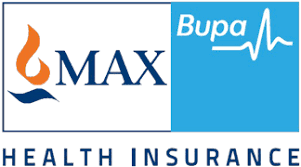 10-05-2021
10-05-2021
Max Bupa settles over Rs 150 cr Covid claims so far; closely watching impact on premium

 Insurance Alertss
Insurance AlertssMax Bupa settles over Rs 150 cr Covid claims so far; closely watching impact on premium
Max Bupa Health Insurance Company (Max Bupa) has settled over Rs 150 crore as Covid claims to as many as 14,500 customers so far and is closely watching the impact on policy premium, a senior company official said on Sunday.
The second wave of the pandemic is much bigger and stronger than the first wave and as a result the claims on account of Covid has gone up sharply, said the official. “At Max Bupa we have paid Covid claims to total of 14,500 customers. In the year 2020 it was around 10,000 in a span of eight months whereas in 2021 we have witnessed 4,500 claims in a span of just three months. We have settled Covid claims of more than Rs 150 crore with an average claims size of Rs 1.45 lakh,” Bhabatosh Mishra, Director Underwriting, Products and Claims, Max Bupa told PTI.
On being asked about the impact of higher claims on policy premium, he said Max Bupa has a very strong solvency position, the company is well capitalised and there is no constraint on it with regards to capital. “As a company, we decided not to go for a revision in premium last year to offer some relief to our customers as Covid had impacted most of people economically as well. We are closely monitoring the situation as far as this second wave is concerned and adopting a wait and watch approach in terms of impact on premiums,” Mishra said.
With regard to the recent Irdai directive on settling claims within an hour in the wake of rising number of Covid cases and burden on hospital infrastructure, Max Bupa said it will comply with regulations directed by the regulator. “Our approach towards claims settlement, be it cashless or reimbursement, has always been robust to ensure that customers get a quick resolution,” said the official.
As there are also some reports of denial by hospitals for cashless admission of patients, the official said this has caused a big inconvenience to the customers, adding a cashless facility is more helpful to customers as they do not have to pay upfront. “Hospitals allege that the cost of treatment in case of Covid is higher for a variety of reasons. And thus, some hospitals were denying cashless claims to Covid patients. Irdai has recently taken note of this and taken measures to ensure customers are not denied cashless service,” Mishra said.
Given the low penetration of insurance in India, he said the pandemic has acted as a catalyst for awareness amongst the people. “The awareness of health insurance has grown manifold, more than what we have seen in the last 20 years in our industry. At Max Bupa, we have seen health insurance related queries increasing in the last couple of months. We are seeing this growing awareness translating into purchase from all over the country, including tier II and III markets.
“Our recent sales trends show that people are opting for comprehensive health covers that can guard them not just against Covid-19 but also insure them against a host of other unforeseen illnesses,” said the official. As per a recent Covid-19 survey conducted by Max Bupa, 57 per cent of people cited the need for comprehensive covers to be adequately prepared against unforeseen medical emergencies.
There is also a demand for short term Covid specific covers which are garnering favourable traction amongst millennials as 43 per cent of the buyers are in the age group of 18-30 years, the survey revealed. “During the second wave, we have seen increased demand for comprehensive products indicating that the awareness has increased in comparison to last year.
“Last year, we saw digitization, product innovation, customer centric regulations by Irdai such as asking the insurers to allow claim settlement for telemedicine consultation under health insurance policy, growing customer awareness changing the Indian health insurance industry landscape,” Mishra said. As the pressure on health services rises, going forward there is likely to be a rise in tele-health services, phono based or online video based consultation, he said.
This could have constructive long-term effects, helping healthcare reach more remote and less affluent populations including the under- or un-insured. Further, business done virtually will be the new normal, whether through digital channels or some of our more traditional channels becoming digitally enabled, said the official. “We are also seeing that now customers are more comfortable transacting online. In the future, we should see a disproportionate growth in both assisted and unassisted buying on company owned websites and through aggregators,” Mishra said.
The standalone health insurer has registered 92 per cent increase in gross direct premium written by it in April this year at Rs 165.50 crore, as against Rs 86.31 crore premium written in April 2020. In FY21, the gross premium written by it grew by 41 per cent to Rs 1,750.78 crore from Rs 1,242.89 crore in FY20, data from the Insurance Regulatory and Development Authority of India (Irdai) showed.
Source: Financial Express

